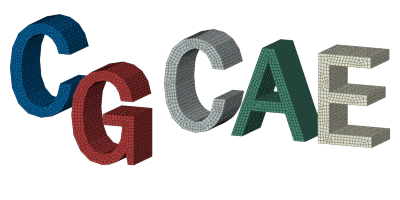
|
|
|
About Us |
CG CAE borns from an idea of his founder, Dr. Ing. Claudio Gianini, after more than 20 years of experience in Structural Design and Finite Element Analysis in different high tech industrial fields, from railways to aerospace (Alenia Aerospazio and Aermacchi), from Formula One (Ferrari, Dallara, Toyota and Sauber) to nuclear fusion energy (ITER project). The creation of a consultancy company was a natural evolution of Gianini's professional path, and CG CAE now provides high level consulting services in thermo-structural analyses to both firms that are facing for the first time such kind of "virtual prototyping" and companies that already have an internal "structural group" but need to deal with work load peaks. Besides a very strong engineering background, the knowledge of all the commonly used commercial software (such as ABAQUS, ANSYS and NASTRAN) allows CG CAE to effectively tackle almost any kind of thermal and structural problems: thermal steady-state and transient, structural static linear elastic, non linear elastic, elastic-plastic, dynamic (implicit and explicit) analyses can be successfully performed by CG CAE engineers, as they can count on more than 50 years overall experience. Knowledge of high tech materials, such as lightweight Aluminum alloys, Titanium, Metal Matrix Composites (MMC), high strength (HS) and high modulus (HM) carbon reinforced plastics is part of CG CAE’s DNA and goes together with the more traditional use of steel and cast-iron. Special and customer oriented post-processing of the results generated by numerical models could be provided, in order to cope with international codes (such as ASME or RCC-MR) or with other procedures (such as internal design manuals) for static, fatigue, post-buckling, limit and collapse verifications. And, on top of that, to maximize the product quality, structural optimization is offered at all levels: topological, shape and size optimization.
|
|
|
|
|
|